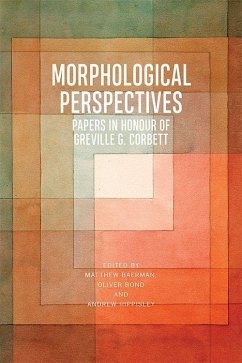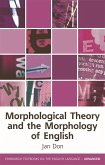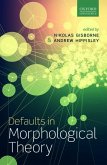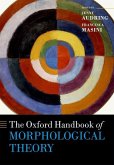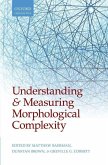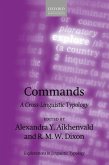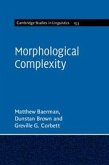Places morphology at the centre of its own research agenda In a field still dominated by syntactic perspectives, it is easy to overlook the words that are the irreducible building blocks of language. Morphological Perspectives takes words as the starting point for any questions about linguistic structure: their form, their internal structure, their paradigmatic extensions, and their role in expressing and manipulating syntactic configurations. With a team of authors that run the typological gamut of languages, this book examines these questions from multiple perspectives, both the canonical and the non-canonical. By taking these questions seriously, and letting loose a full battery of analytical techniques, the following chapters not only celebrate the pioneering work of Greville G. Corbett but present new thinking on traditional approaches, including the paradigm, deponency and morphological features. Key Features *Full ranging examination of morphology's role in its canonical and non-canonical aspects *Chapters by some of the key experts in morphological typology including Bernard Comrie, Andrew Spencer, Mark Aronoff, Maria Polinsky, Oliver Bonami, Johanna Nichols and Nicholas Evans *New thinking on traditional approaches, including the paradigm, deponency and morphological features Matthew Baerman is a Senior Research Fellow in the Surrey Morphology Group at the University of Surrey Oliver Bond is Lecturer in Linguistics in the Surrey Morphology Group at the University of Surrey. Andrew Hippisley is Professor of Linguistics and Linguistics Programme Director at the University of Kentucky Cover image: Polyphon Gefasstes Weiss, Paul Klee, 1930 © akg-images Cover design: [EUP logo] edinburghuniversitypress.com ISBN 978-1-4744-4600-6 Barcode

